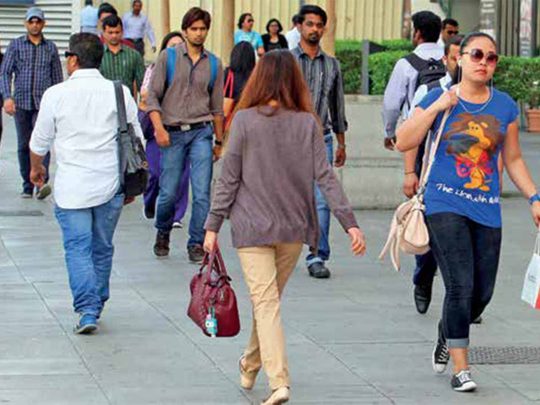
Dubai: Fund managers operating in the local market were positive about the proposed investment fund that is expected to replace gratuity and said the move will benefit all stakeholders and help provide much-needed liquidity in the local stock or bond markets.
Under the current UAE labour law, employees are entitled to a gratuity at the end of their employment if they have completed one or more years of continuous service. The gratuity rises depending on your length of service and is linked to your basic salary.
The proposed scheme considered to be a “major strategic step and a new experiment” in the region will deduct a monthly amount of the expatriate employee’s salary and deposited by employers in the proposed fund and will be managed by specialised institutions.
“The proposal to replace the current gratuity system is one which should be a welcome initiative by employees, employers, local fund management industry as well as the regional capital markets,” Salman Bajwa, head of Emirates NBD Asset Management, told Gulf News.
“The current gratuity amount just sits as an accrual on the balance sheet of the employer earning nothing for staff and doesn’t contribute to local market, unlike global pension schemes,” Bajwa said.
Importance
Experts had stressed the importance of a formal investment plan because the amount from gratuity was so small that it barely covered the relocation expenses of an expatriate. According to a survey conducted locally, only 33 per cent had a retirement plan.
If this proposal sees the light of the day, then employees with private and public sectors will be able to able to earn a decent returns on their savings, and the total corpus, that may run into billions of dollars, may help rejuvenate the liquidity-starved local capital markets.
“An individual’s money would grow over time through the power of compounding. This is significant because it would give expatriates access to a fund that mirrors a traditional pension scheme,” Sandeep Singh, regional head of Central and Eastern Europe, Middle East and Africa and head of Islamic Business at Franklin Templeton Investments, said.
According to estimates from Marmore Mena Intelligence, the total pension fund asset in the GCC by 2020 is estimated to be $602.4 billion (Dh2.2 trillion) and the figure may reach $938.6 billion by 2025.
Safe funds
According to Peter Cox, head of international pension plan sales, Asia Pacific and Middle East at Zurich Insurance Co, companies will need to invest for short-, medium- and long-term liabilities. “Short-term assets will need to be invested in safe, low volatility funds that are liquid and easily accessed, as they may be needed to settle immediate benefits,” Cox said.
“However, in order to keep pace with salary inflation, medium- and long-term investments should be considered. This means investing in higher risk assets such as equities. Because they are higher risk, asset values may undergo periods of volatility, so having a broad spread of different types of asset class will be important,” Cox added.












